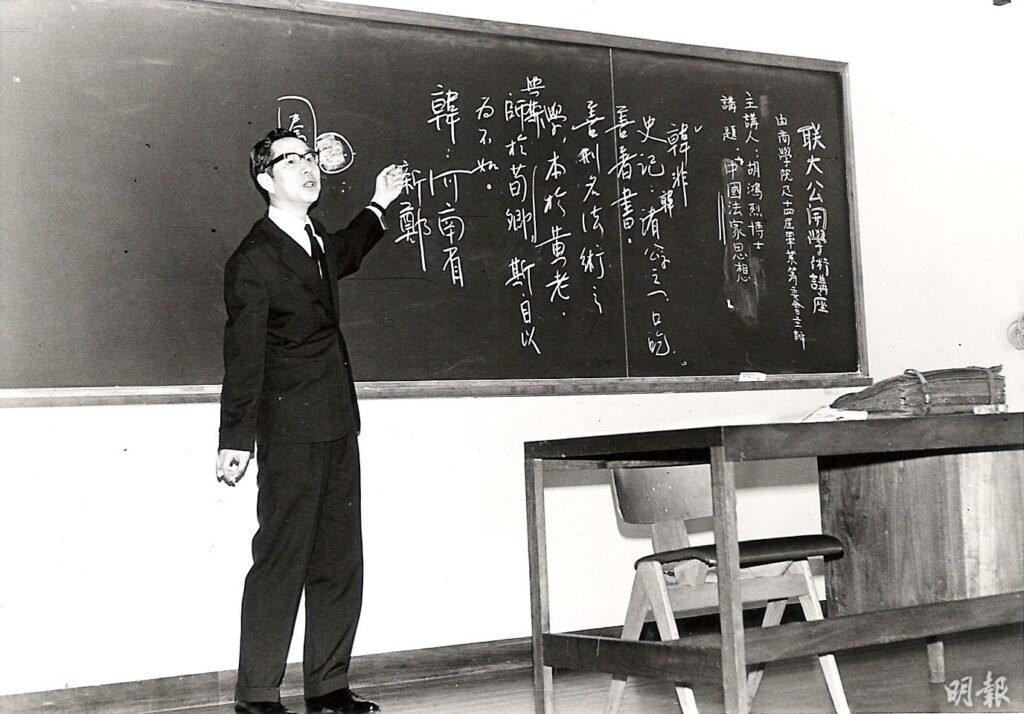Ho Sau-Mei, one of Hong Kong’s last mahjong tile carvers, is getting old. “My eyesight is fading, and my hands are getting sore,” she says brusquely as she chisels the intricate strokes of a Chinese character or the petals of a flower onto a piece of plastic little bigger than a postage stamp.
For over four decades, Ho has been carving mahjong tiles in a tiny roadside shop in Hung Hom, an old harborside district that is now seeing the rapid construction of shiny, new residential high-rises.
She started learning the craft at age 13 from her father, who founded the family’s tile business, Kam Fat Mahjong, in 1962. Masters who would visit Hong Kong during its manufacturing heyday in the 1970s and 80s also shared their techniques and trained apprentices.

Mahjong is a game for four people similar to rummy and is hugely popular across China and among Chinese communities for which it also serves as a cultural ritual and symbol of tradition. Children learn how to play as they spend time with cousins and friends over Lunar New Year, and among the elderly it’s popular all year round.
Mahjong tiles are traditionally made of wood, ivory or bamboo, with tile makers cutting, polishing, carving and coloring each piece.
In the 1960s, there were more than 20 mahjong tile carvers in Hong Kong — and even an association dedicated to the industry.
Now most mahjong tiles are mass-produced in factories in mainland China.

The craft was listed as an “intangible cultural heritage” by the Hong Kong government in 2014, which provides funding for research into and preservation of various protected traditions.
But less than a handful of mahjong artisans are still around the city, and among them Ho is the only woman left practicing the craft.
A craft of precision
Minibuses and double-decker buses zoom past the busy road across her dimly lit ground-floor shop beneath a staircase on Bulkeley Street.
The store is barely two meters wide with a grimy glass case on the wall that reaches the ceiling filled with faded photographs and stacks of novelty mahjong tiles. Hovering behind Ho’s work stool is a shrine that glows a gentle red hue.


Workers from nearby hardware stores and elderly people she’s befriended over the years also banter with her. Pedestrians sometimes slow down to observe Ho deep in work hunched over her small working space.
Ho’s routine has stayed the same even as the neighborhood developed, with mahjong tiles now mostly made by big factories in mainland China.
She’s usually already seated at the storefront and lays out her tools for the day just before 10 a.m.
At 68 years old, Ho says she only works until about noon these days, sighing that she “doesn’t have the stamina” to carve away all day anymore. She could retire if she wanted to, she says, “but I’ll get bored.”
She lays out the Bakelite tiles lined neatly on a heavy wooden tray and prepares her specialized tools on the tiny glass display case that serves as her work desk.

Tiles are packaged inside Ho’s shop in Hong Kong.

Ho uses a traditional tool to carve a tile.
A complete mahjong set comes with 144 tiles, including the four suits — bamboo, dots, characters, directional winds (north, south, east and west) — and special tiles depicting flowers, dragons and the four seasons.
One of Ho’s tools resembles a giant corkscrew and is used to drill the concentric circles on one of the rectangles.
Using other tools with varying tips and angles, she holds the blank tiles with her calloused thumb and middle finger and masterfully etches the complicated Chinese characters and flower tiles with surgical precision.

For the penultimate process, Ho brings out vintage jars of paint, their labels weathered by time. “Don’t go away, this part is fast,” Ho tells us.
She brushes red, green and blue colors onto the naked tiles, carefully bringing the engraved symbols to life.
A full set costs $245 and takes around 10 to 14 days to make by hand. But if you’re planning to order a set from Ho, the entire process is still analogue — and somewhat haphazard.
The phone rings a few times during the day with a handful of customers inquiring about the orders they’ve placed. But Ho doesn’t really keep track of the orders.


There’s no online booking system. Everything is done either by phone or in person, and she scribbles the orders down on a notebook that’s torn apart at the spine.
One caller, a British man who says his wife ordered a set a couple of weeks ago, phones in to check if the set is ready.
Ho asks us to help translate. A shop assistant flips through the notebook and searches for the client’s phone number. Turns out, one set will be ready the next week, so that’s now reserved for them, Ho says.

Ho carves tiles at her shop. It takes her about 10 to 14 days to make a full set.

Ho applies red paint to tiles. A complete mahjong set comes with 144 tiles.
“I can’t keep up with the orders,” she says. “It’s really down to luck and timing. I’m not a machine.”
After the phone calls, Ho finishes painting the tiles, layering different colors on some of the suits.
Once that’s done, the tiles are left to dry for the afternoon and Ho hurriedly starts to close shop.
“I’m still a woman,” she jokes. “I have to buy groceries and keep the house running.”
Back home, she’ll make lunch and dinner, maybe watch a bit of TV and rest her hands that she says are giving her more and more trouble after decades of work.
A sunset industry
As Hong Kong moved from a manufacturing hub to a financial center in the 1990s, the mass production of machine-made tiles moved to mainland China. Some sets sell for just 70 Renminbi ($10) direct from wholesalers online.
There’s a licensed mahjong parlor a few blocks away from Ho’s shop, but they buy the tiles from the mainland, according to the manager who was preparing for customers to start rolling in.
Ho used to play regularly with her siblings but rarely finds time these days. Occasionally she gets invites from old friends.

She believes people will keep playing the game, using tiles bought online or sets that were passed down from generations.
But she has no interest in training others how to make tiles the traditional way, she says, despite repeated requests she says she’s received over the decades from artists and cultural organizations.
“I was just never interested in teaching,” Ho says candidly, determined to work solely at her own pace.

“Every year, students and journalists come to ask me questions, making more people aware of the dying craft,” she said.
“I don’t know how much longer I can do this,” she admits. “But as long as I can still hold the tools, I can still keep doing it.”
The next day, she’ll be back on her stool, carving another set, one tile at a time.








